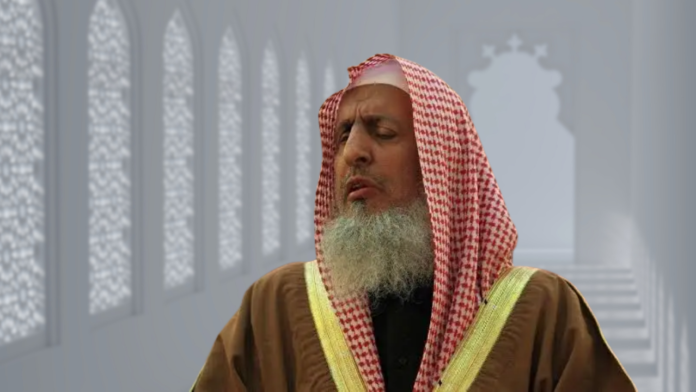The passing of Saudi Arabia’s Grand Mufti Sheikh Abdulaziz bin Abdullah Al ash-Sheikh in September 2025 marked the end of an era. He was not merely the kingdom’s highest religious authority but one of the most influential figures in the global Muslim ummah. In modern Saudi society, where balancing tradition with modernity presents complex challenges, examining his role and impact becomes critically important for understanding the intersection of religious authority and state power in the 21st century.
Historical Background
The Al ash-Sheikh family forms the backbone of Saudi Arabia’s religious establishment, with roots deeply connected to Muhammad ibn Abd al-Wahhab, who initiated the Wahhabi movement in the 18th century. This genealogical connection to the founder of Wahhabism provided the family with unparalleled religious legitimacy in Saudi Arabia’s theocratic system.
Sheikh Abdulaziz served as Saudi Arabia’s third Grand Mufti, succeeding Muhammad bin Ibrahim Al ash-Sheikh and Abdul Aziz bin Baz. The family’s religious tradition has been instrumental in shaping state religious policy since the kingdom’s establishment, creating the foundation for Saudi Arabia’s Sharia-based legal system and its distinctive interpretation of Islamic governance.
This historical continuity represents more than mere hereditary succession—it embodies the institutionalization of religious authority that has remained consistent even as Saudi Arabia has undergone dramatic socioeconomic transformations.
Role in Religious Leadership
As Grand Mufti, Sheikh Abdulaziz’s primary responsibility involved issuing religious edicts (fatwas) on legal and social matters affecting both Saudi society and the broader Muslim world. He chaired the Council of Senior Religious Scholars and the Permanent Committee for Islamic Research and Fatwa, making him the ultimate arbitrator of religious interpretation in the kingdom.
His influence extended far beyond Saudi Arabia’s borders, as he served as a leading scholar within the broader Salafi movement worldwide. Located in Mecca, the holiest city in Islam, his pronouncements carried weight throughout the Muslim world, particularly among communities following Salafi theological interpretations.
His fatwas covered diverse areas from ritual worship to contemporary challenges posed by technology, globalization, and changing social norms. This positioned him as a bridge between classical Islamic jurisprudence and modern realities, though this role often placed him at the center of debates about Islam’s compatibility with modernity.
Influence on Religious Policy Formation
Sheikh Abdulaziz’s most significant contributions involved harmonizing modern conveniences with religious traditions in Hajj and Umrah practices. As millions of pilgrims annually visit Saudi Arabia, his guidance ensured that technological innovations and infrastructure developments remained within Islamic parameters while enhancing the pilgrimage experience.
His positions on contemporary issues—including women’s rights, education, and technology usage—reflected the complex balance he sought to maintain. Notable fatwas addressed women’s driving rights, sports participation, and mixed-gender work environments. While sometimes criticized as conservative, his positions gradually evolved to accommodate modern necessities while maintaining religious principles.
His approach to emerging technologies demonstrated particular nuance. He provided guidance on social media usage, online Islamic education, and digital banking that helped Muslims navigate the digital age while adhering to Islamic principles. This pragmatic approach helped legitimize technological adoption within conservative religious frameworks.
Relationship with the Governing System
The Saudi political system rests on a historical compact between the royal family and religious establishment, where religious authorities provide legitimacy while the state protects and promotes their interpretation of Islam. Sheikh Abdulaziz played a crucial role in this symbiotic relationship, offering religious validation for state policies while maintaining the independence necessary for credible religious authority.
His role during Vision 2030 and modernization reforms proved particularly complex. He supported the kingdom’s ambitious transformation while ensuring that changes remained within Islamic bounds. His endorsement of women’s increased participation in society, entertainment industry development, and economic reforms provided essential religious legitimacy for Crown Prince Mohammed bin Salman’s modernization agenda.
This balancing act required sophisticated theological reasoning, as he had to reconcile traditional interpretations with rapidly changing social realities. His support for women’s driving, cinema openings, and concert venues marked significant departures from previous conservative positions, demonstrating the evolution of Saudi religious thought under his leadership.
Criticism and Controversies
International scrutiny of Sheikh Abdulaziz’s pronouncements often focused on positions that appeared incompatible with modern human rights concepts. Western media occasionally criticized his conservative stances, while human rights organizations questioned certain fatwas’ implications for women’s rights and minority communities.
The tension between younger Saudis’ expectations and traditional religious perspectives presented ongoing challenges. As Saudi society rapidly modernized, particularly among urban youth, his positions had to evolve to remain relevant while maintaining religious authenticity. This generational divide required constant recalibration of religious guidance.
Critics argued that his approach sometimes prioritized political stability over religious principles, while supporters contended that his pragmatic methodology preserved Islamic values while enabling necessary social progress. This debate reflects broader questions about religious authority in rapidly modernizing societies.
Global Impact and Legacy
As head of the Council of Senior Religious Scholars and the Permanent Committee for Islamic Research and Fatwa, Sheikh Abdulaziz influenced religious discourse throughout the Muslim world. His leadership of the Muslim World League’s Supreme Council positioned him as a bridge-builder between different Islamic schools of thought, promoting inter-denominational understanding while maintaining Sunni orthodoxy.
His tenure coincided with unprecedented global connectivity through internet technology and social media. Managing how Islamic education remained relevant in this digital age represented one of his most significant challenges. His approach to online religious education, digital fatwas, and virtual religious consultation helped establish frameworks that many Muslim communities worldwide adopted.
The institutionalization of fatwa-issuing processes under his leadership created systematic approaches to religious guidance that transcended individual authority. This institutional legacy ensures continuity in religious interpretation even as leadership transitions occur.
Vision 2030 and Religious Adaptation
The kingdom’s Vision 2030 initiative presented Sheikh Abdulaziz with perhaps his greatest challenge: providing religious legitimacy for unprecedented social and economic reforms. His support for women’s increased workforce participation, mixed-gender events, and entertainment industry development represented a significant theological evolution.
His approach involved reinterpreting classical Islamic texts to accommodate modern necessities while maintaining core religious principles. This hermeneutical flexibility demonstrated how traditional religious authority could adapt to contemporary challenges without abandoning fundamental beliefs.
The success of Vision 2030’s social reforms largely depended on his religious endorsement, highlighting the continued importance of religious authority in Saudi governance despite modernization efforts.
Theological Methodology and Innovation
Sheikh Abdulaziz’s theological approach emphasized contextual interpretation (ijtihad) while maintaining textual authority. His methodology involved consulting classical sources while considering contemporary circumstances, creating space for adaptive religious guidance without abandoning traditional foundations.
His emphasis on consultation (shura) within religious decision-making processes helped legitimize collective religious authority while maintaining hierarchical structures. This approach balanced individual scholarly authority with institutional consensus, creating more robust religious guidance.
Sheikh Abdulaziz Al ash-Sheikh’s passing represents a pivotal moment for both Saudi Arabia and the global Islamic community. His legacy demonstrates that religious leadership in the modern era requires unprecedented sophistication in balancing traditional authority with contemporary challenges.
His greatest lesson lies in demonstrating how local realities and international Islamic unity can be harmonized. He proved that religious tradition and modern necessities need not be mutually exclusive, though achieving this balance requires continuous theological innovation and pragmatic wisdom.
The future of Saudi Arabia’s religious leadership will largely depend on how its successors continue this delicate balancing act. His life and work established that religious authority involves not merely spiritual guidance but deep engagement with social and political realities.
As Saudi Arabia continues its transformation under Vision 2030, the religious establishment’s ability to provide legitimacy while enabling progress will determine the kingdom’s success. Sheikh Abdulaziz’s legacy provides a framework for this ongoing challenge, demonstrating that religious leadership can be both authentically traditional and pragmatically adaptive.
His impact extends beyond Saudi Arabia’s borders, influencing how Muslim communities worldwide navigate the tensions between religious authenticity and modern necessity. This global influence ensures that his theological contributions will continue shaping Islamic thought long after his passing, making his legacy a lasting element of contemporary Islamic intellectual history.


